Welcome to Episode 58 of iPullRank’s Rankable Podcast, where we discuss various hot topics in the world of SEO and digital marketing.
On Ep.58 of iPullRank‘s Rankable Podcast, Garrett Sussman hosts DC Glenn, one-half of the multi-platinum ‘90s hip hop group Tag Team which made the pop classic “Whoomp!” (There It Is), to discuss the topic “Outside-of-the-Box SEO Tactics.”
DC Glenn has been in the music industry for 3+ decades! Did you know that he has a mild obsession with SEO? He’s been doing a variety of testing on his own, and you know that he’s got some epic stories to share.
This week, DC Glenn will be joining us to discuss his special techniques for SEO.
We’ll also discuss:
- How his music career led him to SEO.
- How he’s built his own knowledge graph for Tag Team and disambiguated it from wrestling.
- How Wikipedia and wiki data influence SEO.
- How SEOs need to always adapt to Google’s moving target.
Transcript:
Garrett Sussman: [00:00:00] Yo, what is up? I am excited. Garrett Sussman of iPullRank here for Rankable Live a Rankable podcast. I got to say DC’s in the house. Jump. Jump. Rejoice. Uh, we’ve got DC Glenn. I’m so excited to dive into it. This man knows SEO inside and out. We’re going to find out how the heck he got into marketing and SEO.
But for those of you don’t know DC, the Brain Supreme, we’re talking DC Glenn, who is one half of the multi-platinum nineties hip hop group Tag Team, which made you know that pop classic Whoomp (There It Is}. For those of you who aren’t as old as me and grew up on this. You might’ve seen him more recently on the Geico commercial Scoop, There It Is.
uh, killing. It was sag. Uh, he’s also an actor. He’s a comedian. He’s a voice artist with the People Store Agency in Atlanta. I think I got it all. DC. How are you doing, man? Thanks for joining me.
DC Glenn: Hey man, I’m doing very, very well today.
Oh man. Where do we
Garrett Sussman: even begin? So, I remember you from the nineties, you were one of the first cassettes that I bought with Whoomp (There [00:01:00] It Is) back in the day. How do you end up in marketing? How do you end up in SEO?
DC Glenn: Actually, our engineer was, was really hype on the internet. We were like one of the first groups to have a website back then all the way back in like 94,
Garrett Sussman: Really?
DC Glenn: And it was bare bones and it was caveman, but, and I didn’t realize what it was.
And that was like the first version of a what’s the one what’s the, uh, editor and Microsoft, Microsoft. Uh, I forgot what it was so long ago. Um, uh,
Garrett Sussman: it’s going to get. What was it like? Was it like Space Jam. Did you have like GIFs going on with like sparkly images and whatnot?
DC Glenn: Yeah, it was a, no, it was actually kind of clean.
Garrett Sussman: Cool.
DC Glenn: I can’t go on without knowing what this is. Microsoft.
Garrett Sussman: Timeout.
DC Glenn: No, no, no, you ain’t got a pause. It keeps rolling.
Garrett Sussman: We’re rolling. [00:02:00]
DC Glenn: Okay. Microsoft,
Garrett Sussman: That’s crazy now. He’s I remember I, I had my computer in, in my kitchen. I must’ve been in middle school to date myself in the mid nineties. When this came out of high school.
DC Glenn: Microsoft. I’ll remember it, but anyway, that was the internet they used back then and it was crude and I just didn’t realize what it was.
And if I hadn’t been thinking, you know what I mean? It’s always, it’s always the things in life that you wish you had a jumped in on at the beginning, but it’s never too late, you know? So, you know, uh. Me getting into digital marketing was really easy because I was always in the marketing because I deejayed in the clubs.
So I’m always making flyers. I’m always making, after the, you know, I was on the first version of Photoshop, I’m always passing out flyers. I’m always doing the radio spots because I can cut it up and make it tight. So I, in essence, I have always been marketing. I’ve been marketing my whole life and [00:03:00] I don’t mind hustling and getting out there and letting people know what I’m doing.
So. You know, in a roundabout way I’ve been doing this since I was a kid.
Garrett Sussman: It makes sense with hip hop, right? Cause it’s like, you know, you’re always going to have your MCs. You’re all about hyping it up. And so just doing that like at scale and trying to build that out. So you you’ve got into marketing, you’ve got into SEO.
I I’m impressed as hell because you go to the Tag Team website and you guys actually ranked for tag team, which has like 70,000 visits per month. So tell me a little bit about your involvement in the current website. What are you currently doing when it comes to SEO and, and what are you into?
DC Glenn: I do all of it.
Garrett Sussman: That’s all you, that’s all you. So, so bill, tell me, tell me, walk me through building out that site. How, how, like, how how’d you start? How did you build it up? Yeah. Okay.
DC Glenn: So I can just go. Okay. So I way back in the day, my life is full of tragic events that [00:04:00] turn into opportunities because I vow that they’ll never happen again.
Right. So with Tag Team, you know, we got in a lawsuit, I said, okay, I’m gonna become a paralegal. And when, you know, when everything was going bad, I was like, no one will ever take money from me again. Or I’ll be tight on my finances from here on out. So I became a licensed commodities broker. I became a paralegal basically, right?
Because I had to learn the language to be able to understand what was going on with my case. Because I knew I would have my day in court. And then somewhere around the time around 2002, I started getting into the big self-help thing and I can’t remember what book it was, but it stuck with me Run Your Life Like a Corporation.
And that’s, that’s what I started doing. And when you do that and you’re working in the clubs and you’re doing all the shows you become, self-sufficient in a lot of things. And you know, one of the first things I did was, it was a book called, uh, can’t remember what it was called, [00:05:00] but the guy on the pie shop , he wanted to own a pie shop.
So he went to work at a pie shop for six months. He bought a pie shop. Then he, uh, franchised the pie shop. Then he sold it for $20 million. He called his process getting in the corridor. If you’re at a job, learn how to do everything in that job. And that’s what I did. So I’m not just your DJ, I’m your light guy. I’m your sound guy.
I do your flyers. I do your SEO. I do your video. I do your television commercials. I make your deals for all these things. I do 10 things. So if you get rid of me, you got to find 10 people to do them. Everyone should do that with any job they hate. Don’t like, or feel like they’re stuck in between. You’re not doing all this extra stuff for the company.
Everybody’s like, I’m about to do all that work and ain’t paying me. I’m like, you’re missing the opportunities to learn. And those opportunities you learn, like if somebody shows up sick and a boss, like I need somebody who can do, I got it. Now you become invaluable, even if they do let [00:06:00] you go, you transition yourself to the next bigger thing easier because you gain mastery in things that you never thought you would have done.
Because you stay proactive, you played offense. You didn’t give up, you didn’t let your emotions get the best of you. Right. So it’s crazy how my SEO career started because it was brutal and it was painful for me to learn it. But 2011, I’m at the club DJ, and I get a call. Do you see there’s this girl at the front?
She won’t get off the phone. She said she got to talk to you. And I’m like, which one of these women I’ve done?
It was a reporter from the New York Times. And she was like, I gotta talk to you. I was like, call me in the morning. She called me in the morning. She said, have you seen the Gawker article? I was like, no, she’s like the whole world thinks Barack Obama is in your music video. I was like, no way. And we did press that whole week and we just, it was [00:07:00] fun.
We did ABC, NBC. Good Morning America. We did all the shows and after two weeks I had nothing to show for it. Pissed me off. I’m like why? And it’s because I didn’t have a web presence. That lady could not find me. She went over the Hills and through the woods to grandma’s house, trying to find me. And she found me.
Right. But it should not have been that hard to find me. So I said, that’ll never happen again. And I started my SEO career, started learning how to build websites for the club. And it was just brutal because I’m not the greatest that use, you know, building the web. But then SEO is just so confusing to me.
It’s confusing there, but it’s still confusing to people. So what I do all the time, just to help me understand things is I break things down into analogies. Analogies, metaphors, whatever. Just like we do when we write lyrics. Right? See one thing always serves another. And because I do that so well, you know, I just kind of [00:08:00] started figuring out, okay.
So SEO basically is. Being seen. Right? But how, how, how, how can you get seen and it, and that’s the question. It is all evolved from 2011, because 2011, you type in Tag Team, it was all wrestling, it was all tag teamPokemon. It was all tag team was Laverne and Shirley, the real estate duo. It was everything tag team except Tag Team, no knowledge panel.
No nothing. 2021, you type in tag team. It is all Tag Team. And that was an incredible journey and it still is an incredible journey. And I think the first thing that I had to do is I had to do disambiguate Tag Team from everybody else. Right. But how do you do that? You know, you do, you know, Do you write letters to Google saying, Hey, get this out of my knowledge panel, [00:09:00] right?
That don’t work. Right? See like, people think that it’s that visceral, but people don’t understand that Google is a robot that has no emotions. It has no feelings. You’re not trying to get Google to like you, it has no emotions. So when people ask me about SEO, I said, if you were looking for you, this is what I asked them.
If you’re looking for. What do you type into Google? And they can’t tell me. I said, there’s a problem because all SEO is, is answering a series of questions really like in the last four or five years, because everything is about suggestions, questions, right? It’s not about keywords anymore. Everybody used to be like, I want this keyword.
I want these mini lessons. It’s not about that. But that’s, that’s just the keywords you want to rank for. Right? The real meat [00:10:00] comes with the symphony of all these little things that Google tells you, because Google has always given you the recipe. When they changed the algorithm, they tell you a year before they do it, they give you the recipe to feed the bot.
So what are you going to be a short order cook or five- star Michelin chef? Right. And so with me, it was difficult at the beginning because it just was difficult. I mean, I signed up for every group. I did all the, you know, I did all the research, all the biggest gurus and everything, and it just never really panned out for me.
But then I think around 2000 and I stopped DJ in 2015, that’s when I just went full bore and I built a t-shirt site. Now the only error I’ll built the t-shirt site, 700 products. And instantly I was ranking for like 300 keywords and all [00:11:00] my mentors were like, dude, that’s bananas. Nobody does that. Cause I became, cause I knew that keyword research was, was the holy grail back then.
Right? So I was masterful at it because I could go in, I can make spreadsheets, I could break it all down. I could bring it back up. There are certain little things you look at, people are looking at just the volume, but you can’t look at the volume. You got to look at who’s buying ads on that. People buying ads on it.
That means it’s just going to be tons of track. Everybody’s trying to get it, but if they’re not buying ads for it, it’s a decent amount of volume. That’s what you want to go for. But then, you know, there’s a way you gotta structure all that. A lot of people think you could just start throwing keywords at Google.
And Google was like, no, cause you’re going to confuse me. Right? And that’s what happens. So Google you, you’re throwing all these keywords at Google and you just you’re, you’re just getting confused. Google is getting confused and you’re still in space. And then you get frustrated and there’s, there’s so many things that you [00:12:00] have to learn and it takes time.
But once you have them. And you understand silo structure and you understand, you know, that it’s not about the keyword it’s about, can you answer the question, right.
Garrett Sussman: It’s clear, like you really fundamentally understood that SEO is speaking to Google where it’s search intent, your users, the people who are looking for you and then site structure and making it as clean and obvious and organized as possible.
And so that’s what you took and run with it?
DC Glenn: Uh, not really, I mean, think about, okay, so everything is a moving target. What works today, don’t work tomorrow. Right. So I knew after I built that site, it was just too big for one person to do that site, with that many products. Plus the, the, it just wouldn’t have been, I just, I messed up.
I should’ve done one t-shirt and just roll with that and, and [00:13:00] got good at that. Then did another t-shirt and got good at that. And then another t-shirt and got good at that and just kept going like that. So then I said, I’m concentrating on tag team because we, I want to start going on the road again. I want to get us shows and I had to figure out how to get all the wrestling, how to disambiguate everything from what I was doing.
And I figured it out and it starts with the knowledge. But what feeds the knowledge panel, right? Something feeds the knowledge panel. What, what are the criteria? Well, what does, what does, what entity does Google trust the most in your opinion?
Garrett Sussman: Well, just in terms of like the structured data that you’re providing, right? The schema.
DC Glenn: Not even a schema, what entity?
Garrett Sussman: Links.
DC Glenn: What does Google trust the most?
Garrett Sussman: You tell me.
DC Glenn: [00:14:00] Wikipedia.
Garrett Sussman: Oh, of course. Yeah. That’s that is the authority on information
DC Glenn: Wikipedia. So if my Wikipedia page, cause I’m going on, I’m going all over the internet, looking up, everything Tag Team because I got to figure this out and everything is saying, Tag Team is a Miami base group that was only active from 1993 to 1995.
And then like what? Yep. I had to learn how to ride a Wikipedia page.
Garrett Sussman: Wikipedia is a pain in the ass.
DC Glenn: No, it’s not. It’s the whole,
Tell me, educate me.
It’s not that difficult, right? It is difficult, but I’m the Guinea pig right? I’m the Guinea pig. And what I did is I got the Wikipedia page rewritten. I wrote it myself and then gave it to somebody who knows Wikipedia pages and they edited it.
Garrett Sussman: Gotcha.
DC Glenn: And when I dropped that Wikipedia page, things changed because everything on the [00:15:00] internet aggregates from a Wikipedia page from those first, I think it’s 198 characters. And when you aggregate from it on all the music sites, that’s what’s coming from the Wikipedia page. If you want to impose your will and you want people to find you, you better have those first 196 characters explicit on the Wikipedia page. After that, everything’s just everything. It’s just fluff. They’re going to take the whole article and put it on their page and put it on their blog and put it. They’re going to regurgitate it. But Wikipedia is like a press release,
Garrett Sussman: The press release.
DC Glenn: The press release of all press releases because every entity on the internet will aggregate from it.
So therefore things will start dropping into the knowledge panel because if you did the Wikipedia page, right. See everybody’s thinking I got to do this for Google. But it’s about if you do the recipe, right. And I’m a, five-star Michelin chef and I’m feeding the bot the right [00:16:00] information. Then the bot, when it’s out there crawling, brings the information that’s relevant to beat me back to me and puts it in my knowledge panel.
Garrett Sussman: Yep.
DC Glenn: Because every record I put out, everything that I have has gone through the library of Congress. All these things have information around because at the beginning of the internet, everything was in the real world and in the real world has to transfer to the digital world. Right? It’s like the transition from horses to cars.
So now all of this stuff is in everything that was in the real world is now digital. Now it has to be organized. So it was digital digitized at first. So everybody’s thinking, okay, if I’m on the internet and I do this, I can do that. Nah, nah, it has to be archived. Right? So Google was spending all of his time, archiving everything on the, in the [00:17:00] universe because that’s how Google makes its money.
It is a search engine. People are looking for things. If you’re looking for something and you, everyday, everybody gets up and type stuff into Google and they can’t find it. What if you can’t find it, then something’s not right. But SEO is the ability to be found by the people you want to find you. See, everybody is like me, like me, like me.
That’s why social media is just so everybody, people who don’t know it or fear it, they just say. Just like you just said, man, Wikipedia pages are a pain in the ass because you don’t, you don’t understand, you know, I’m not going to say you don’t understand or don’t know it, but there’s a visceral reaction when you did that.
And I can tell you with your Wikipedia is the way, I mean,
Garrett Sussman: I believe it. They’re it’s just, they’re a gatekeepers to it, right? So you have to invest,
DC Glenn: You got to upgrade. So all you [00:18:00] gotta do is learn. Yeah, I am a certified Wikipedia Wiki data expert, and I took one class.
Garrett Sussman: Where where’d you get started? Where do you, where would you point people if they want to get into it?
DC Glenn: I took a class about Wikipedia and this is the class about Wiki data. Right. And it changed my life because Wiki data it’s basically inputting all the references that you use to write Wikipedia pages. It’s called Wiki EDU, right? A Wiki Wiki education. And I took a class and about five years ago, it was, it was just Wikipedia.
But now you got Wiki commons, which has all the, the, the, the media, right? Because media is big now, but it has to be creative commons. Everybody has to be able to use it. Then you have, um, wiki data is [00:19:00] basically a reference that you use and Wikipedia. So this is how I explain it all. This is, this is what, this is my invention, because not my invention, but this is how I’m about to roll because the Wikipedia and Wiki side fears, SEO, and the SEO side, doesn’t like the Wiki side.
So they both outsource each, but they’re not being served properly. Right. Because only, you know how to customize you. Right? So this how I explain it, Wiki data is the fertile soil and your seeds for Wiki data are, Who are you? Are you a man? Have a where did you go to school? When were you born? Who are your parents? Uh, well, what job where you have, what genre music are you?
What are you, what is your job occupation? What is this? Who are you affiliated with? Who are you associated with? [00:20:00] Are you associated with a company or associated with a business? Do you have a Library of Congress authority number? Do you have this? Do you have that? These are the things that people don’t even know they’ve accrued throughout their life.
And when you find them, that is data. Absolutely. And what does Google love? Data. Data will.
Garrett Sussman: So you, you have, you are in essence, you’re a celebrity, right? Like you had so much success with Tag Team. What would you say to someone who doesn’t have that starting point? Like with Wikipedia, do you feel like it’s accessible to people who haven’t established themselves?
DC Glenn: You’re starting, you’re starting from a premise that make you want to quit already.
Garrett Sussman: That’s fair.
DC Glenn: Like I don’t, I don’t look at it like that. I’m looking at like what I got to do and see, I would add to my [00:21:00] parents because it worked me like I was dog, like a dog when I was young. Right. So it’s like, I understand how to hustle because I have never not known work.
So therefore, as a grown man, I do not fear work. I want it to be hard because I know everybody’s not going to do it. So you got the soil, which is the Wiki data. You got your little bitty things that you drop your seeds, you drop in the soil. Those seeds are the things that you have done in your life. It could be the most mundane thing, but what it is is data you’re archiving your existence.
And when you archive your existence, and Google goes and crawls that initial layer of Wiki data. Now, when it goes out and crawls everything else, it remembers because it is a robot and now it brings everything back to you. You see what I’m saying?
Garrett Sussman: Yeah.
DC Glenn: Everybody thinks they got to go out and get something.
When all you gotta do is [00:22:00] set it up properly and it comes back. It’s almost like not like the Marvel movie where the earth is being sucked into a black hole and everything is being sucked into a black hole. Well, that’s how it works in a positive way, because Google was out there sucking everything that has to do with you because of the data back to you.
And now it knows how to put you in the places that you need to be, which is your knowledge panel. Now you can control what goes in your knowledge. Through different numbers through different, but then you got, but then you got to go do the research, which site has the most authority. And then that’s what you put in your Wiki data.
So when Google crawls, oh, this is more important than that thing I used to have in there. Now you can fashion your own Wiki data page, the way the data dictates and you can’t cheat. That’s the beauty of it.
Garrett Sussman: Right.
DC Glenn: You can’t cheat. You can’t manipulate because we all check. [00:23:00] And you and I had to learn the hard way.
I got several stuff, several things taken down several things, and I was like, okay, what am I doing wrong? And I just kept going. I know I, cause I don’t quit. Right. I will not quit. And I figured it out. And now if you look at, if you type in, like if you type in Wiki data, DC Glen, or Tag Team, you will see that I have data on my Wiki Wiki’s than any rapper or rap group or rock group, period.
Garrett Sussman: That’s awesome.
DC Glenn: You see what I’m saying? You put in the time. Yeah. That’s what the data. So now that’s the soil. The seeds are your references. The harvest is your Wikipedia page because now you can write and you got all the references.
So you’ve got that little clip in a, in a magazine article that you did. You got that little audio from a podcast that you did. You got all these things. That’s why I [00:24:00] do three or four podcasts a day, because now affiliated with this podcast affiliated with that podcast, Google crawls. And now I’m a podcast expert.
It lets people know that I do podcasts. Now people are calling me because they weren’t good.
Garrett Sussman: It’s so good, man. I mean, it makes so much sense.
DC Glenn: Everything that you do, right? Everything it goes into Wiki data to Wiki data first. So the harvest is the Wikipedia page. Now all you have to do, you got two layers, you got two layer cake.
The third layer is the mirrorization. If that is a word of your website. To layer one, which is Wiki data. Layer two, which is Wikipedia. Now layer three, you’ve mirrored your website to match the data. Now you’ve got three tiers of data that, that, that coalesced [00:25:00] together when Google crawls that it gets a hard on.
Garrett Sussman: Yeah, you disambiguate it.
DC Glenn: That is exactly what they want you to do. You are helping Google do its job. Then the fourth layer schema, that’s where you get creative, right? Because with schema, you can create the carousel that goes across. You can create the latest from, if you just have one page that’s dedicated to news because it’s going to pull from that news.
And if it’s relevant, Google will place you because you’re doing it right. The whole way. You see what I’m saying? Yes. Now your press releases stick. They don’t, they don’t evaporate. Right? Because you know how to write press releases because you can mirror them with the website. You can mirror them with the Wiki data, the Wikipedia, the website, because it’s [00:26:00] blog on your website and the schema.
You got four layers of consistent data that Google crawls. And now it goes out and it pulls everything back to you. And now anytime it sees anything that has to deal with your data, it knows exactly where to put you and now you flourish and now people can find you. Social media doesn’t even matter, right?
People like people want to be liked. And it’s like, why? You know, I got to have a hundred thousand followers. Why? Because, you needy. And you think that the if people like you, they’re going to want you when it’s like, you don’t need a hundred thousand to make money. All you need is 10. All you need to do is answer the question or be the service for 10 people and they will ride with you forever because you have solved their problem.
Garrett Sussman: I love it. Well, let me ask you DC. So. You’ve got this under control. You’ve got your, your, your knowledge graph on lockdown. You understand how it works.
DC Glenn: Not [00:27:00] really. It’s always a work in progress. Let’s put it that way. Like this stuff I got to do, this is a lot of this is theory and it’s not really I’m doing it, but I have, it’s so much that I have to teach people how to do this before I can even find anybody to help me do it, because this is customed to me, my situation is different.
Right, right. But go ahead and ask a question.
Garrett Sussman: No, I was just going to ask what you see the future of the knowledge graph being, how are you going to continue? How do you continue to adapt? Like if there are, you know, in the last few years we’ve seen a significant amount of like new kind of features or, or attributes being added to the knowledge graph.
I just want to pick your brain. What direction do you, do you predict it goes? Yeah,
DC Glenn: All that is, all that is in combination with something else. So whatever little thing that they put in, they tell you, they say, okay, we’re going to have a, we’re going to have a, uh, an accordion. Think about it when you go type in an actor, right?
Are you going to type in a movie [00:28:00] that certain genre movie, you got an accordion going all across the top. You could do that with yourself. Top 10 black actors in Atlanta, make your own accordion. Schema it. Now you got an accordion when they pull a DC Glenn because you’re an actor. All, you have to have it mirrored right now.
If you just do that with just schema and it’s not on the webpage and that’s different, but that’s how you build silos. You build silos and then your keywords, you build pages off those keywords. And when you build those pages off the keywords, then you can really do damage because you can be strategic top 10 list of this top 10 list of that top five.
It could be the top three list. And it’ll put you somewhere if you schema it up. So think about the things you have that you could do with schema. Right? You’ve got, you’ve got suggestions, suggestions are just answering questions. So you can put your, um, you can answer the [00:29:00] questions. What are the top five questions that people are answered that pertain to you?
Right? Like with me, who’s in the new Geico commercial. That’s the number one question on Geico commercials page. All I got to do is answer it. Who’s in the Geico commercial question mark? Do you see the Brain Supreme? And Steve Rolln of Tag Team who are the nineties hip hop duo Tag Team and their commercial Scoop There It Is. Is Geico’s greatest. Two, three sentences. Schema it up. Now I get that question on, the Scoop There It Is. Or Geico commercial keyword, which gets 75,000 searches a month. And if I do it right, it’ll jump up to the first page on Geico and that’s 2.74 searches a month.
Garrett Sussman: Yeah, you simplify it. I mean, I get it with the metaphors, like how it’s you can make it so clear the way you think about it.
I mean, obviously, you know, you, you’ve got the, these [00:30:00] educator genes, you’re both, we’re, we’re getting to the end, but obviously, I could talk to you forever. And one thing I do want to say is, uh, one of our viewers mentioned, uh, the Microsoft editor back in the day? Microsoft Front Page,
DC Glenn: Front Page, the Front Page, Front Page.
And then Adobe is, I was thinking Adobe. That’s why I was confused. Adobe was, um, that’s what I was thinking of. Adobe’s editor. Yeah. Front Page editor for Adobe is a, I want to say Excelsior. That’s why I got my head. I can’t remember
Garrett Sussman: Shout out to, uh, to John Murch for that one, but dude, DC, it’s it’s really cool.
Like you, you. It’s a pleasure talking to you about this, because obviously you’ve done the work and you really have understood the way the value of, of Wikipedia, Wiki data, controlling your schema, controlling your SERPs. Um, if someone wants to like get in touch with you, either in an entertainment capacity, but in an, in like an [00:31:00] SEO marketing capacity, how, how do you want to be found?
What’s the best way to reach out?
You’re typing
DC Glenn: anything, Tag Team DC Glenn Steve Rolln, whatever you’re going to find me. It’s that.That’s SEO the ability to be found. If I get in a car accident and break my leg, I’m like, call 9 1 1. I need an ambulance, wait a minute. That’s an ambulance right there. Never mind.
That’s SEO, hopefully being in front of people that need you. I can put myself in front of casting directors. I can put myself in front of voiceover artists. I can put myself in front of anybody. I need to put myself in front of, if I just go ahead and build it out then because, and then here’s the thing.
This is what I, this is the beauty of it. I’ve got, I had every time I come to the record company in LA, I would get big stacks of papers, right? Contracts, memorandums, itineraries, other articles from everywhere. And [00:32:00] I just put it in a box and sent it to my mother. And that was the greatest thing I could have ever done for my life because I’ve digitized those thousands and thousands of pieces of paper.
Now they are all references and they tell the timeline of Tag Team and now each one is a references. So the story I can tell with all of I’ve got five outsources, just doing data entry, cataloging them, cataloging each page, giving it a title. Uploading it to sources that Google trust, which is Flicker, uh, Google, Google, uh, Google Drive.
And now I can use any of those because what is this about bringing things from the real world, the physical world to the digital world. So if Wikipedia education say. We don’t know if that exists. Like yeah, you do call them. We’ll pull it out for you. Right. This is what happened. I got five different five to in an hour.
I’d never put just one references. [00:33:00] I’ll put three or four references in just to make sure. Right. That’s how, that’s how you double up. You don’t do, you don’t do five different things with a reference. You do one thing with five different references. Now that expands the tenant. Now
Garrett Sussman: you legendary, man. It’s, it’s crazy.
Especially when you say things like, you know, like pointing out that you are, you know, the rapper with the most Wiki data out there, like you are doing the work, you are documenting yourself in a way that I feel like nobody’s. Yeah, but
DC Glenn: here’s the thing is the thing, the reason we love Shakespeare, Bach, Beethoven, the reason we even know about them fools.
It’s because somebody archived their shit. Yeah. Hey Shakespeare’s boy, Roger probably was better than him, but all his scrolls burnt down in the house fire. He was an alcoholic. So nobody even knows who he is. You don’t, you know, the [00:34:00] story, somebody throws away, you know, somebody throws a bunch of pictures out of a storage unit cause they passed on and then somebody just walked by and like, wait a minute.
What kind of picture looks good? They take all the pictures out the trash. Now they got an art gallery with all these pictures. Now that photographer is remembered for the forever. I’m building a Tag Team museum, a DC the brain museum. Whoomp There It Is, will be remembered till the end of time when I get done.
That’s all I,
Garrett Sussman: and that’s true. I get it. I get it. I can see, you know, 2,600, you’re going to have it. You’re going to be immortalized.
DC Glenn: The whole point. It’s thinking differently. So you can’t look at what I’m going to get out of it. You gotta, you gotta switch your whole mind around. See I’m not emotionally attached to anything. So therefore my mind is truly open. I can sequester my ego and my pride because I know it’s going to take work. The same thing with [00:35:00] acting.
It was brutal, but I know that if I don’t get an audition, it’s okay. And I’m not even thinking like that. I’m thinking, well, and I’m not even thinking like that. I hear people say it took me a hundred auditions. Well, if it’s going to take me a thousand auditions, can I get 50 auditions a day? Because the quicker I get to a thousand let’s roll, it’s about playing offense, not being emotional and just going, right?
You don’t plant a seed. See here’s the problem. Everybody thinks everything is a quid pro quo. So you don’t plant a seed and sit down Indian style, say, okay, seed, grow. Why ain’t the seed growing? Seed ain’t growing man, man, I quit. Now. We know, we know a lot of people took a real estate course, thought they was going to be rich and you ain’t heard from book and that’s because they thought that they were mostly attired to it, but I don’t work like that.
You plant that seed. You keep it moving. You keep it moving and you just keep going. You keep going. [00:36:00] And I have planted so many seeds, especially recently and all throughout my life that I stand before you in a forest of opportunity, unimaginable, I plant a seed 28 years ago called Whoomp There It Is. And now it is a Sequoia
it ain’t going nowhere.
Garrett Sussman: That’s beautiful. That is that. Is it folks that, that I, I want to stop right there. Cause it’s like, you are just gem after gem after gem sir. Thank you so much for taking the time. Like I
DC Glenn: I’ll come back and running my mouth as what thank you for letting me come out here and run my mouth because I love SEO and I feel that I have just created things and systems that.
People just, um, I have all the stuff I don’t have to get links. I’ve got a million links already. Right? So that’s where I’m a little different, but you got tons of links too, but you just have to put the data in and connect all the links. Then they come back to serve you because you never know how many leads you got on authority [00:37:00] sites.
And now you got that link and now your site becomes more powerful.
Garrett Sussman: Dude, you’re a man who exceed expectations. Thank you so much again for being my guest. This has been awesome. Um, this is DC Glenn from Tag Team, just type in tag team and find this beautiful knowledge graph that he’s built and continues to build every single day.
My name is Garrett Sussman demand generation manager, at iPullRank. This has been the Rankable podcast. We are signing off. Thank you again.
DC Glenn: Sprinkles!
- How Mountain Dew Won the Super Bowl with 46% Brand Visibility across ChatGPT, AI Overviews, and Perplexity - February 12, 2025
- SEO RFP: The Best Process for Hiring the Right Agency [Template] - October 2, 2024
- Status Quo Bias: The Behavioral Economics Principle That Rocked the Google Antitrust Trial - August 22, 2024

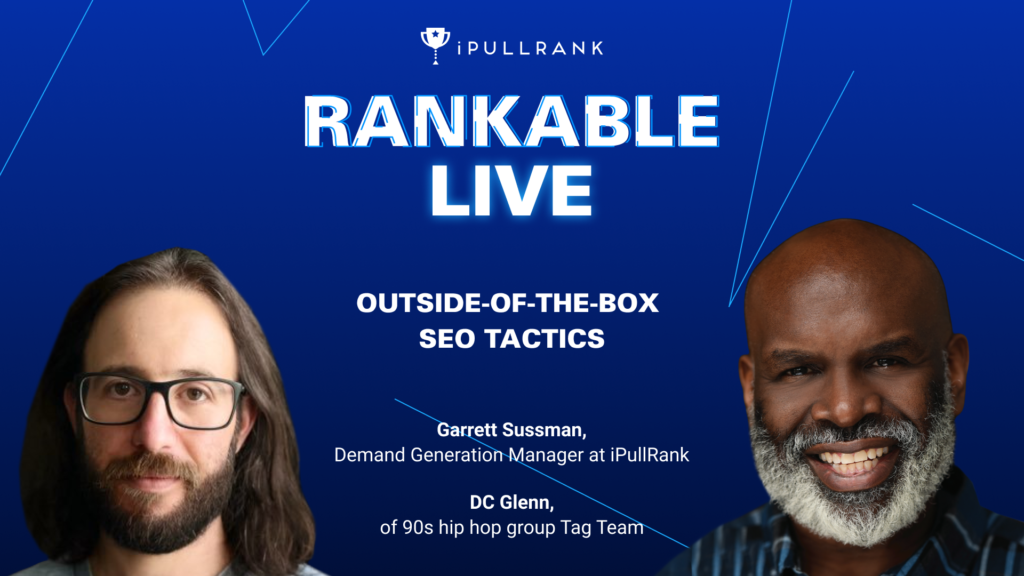
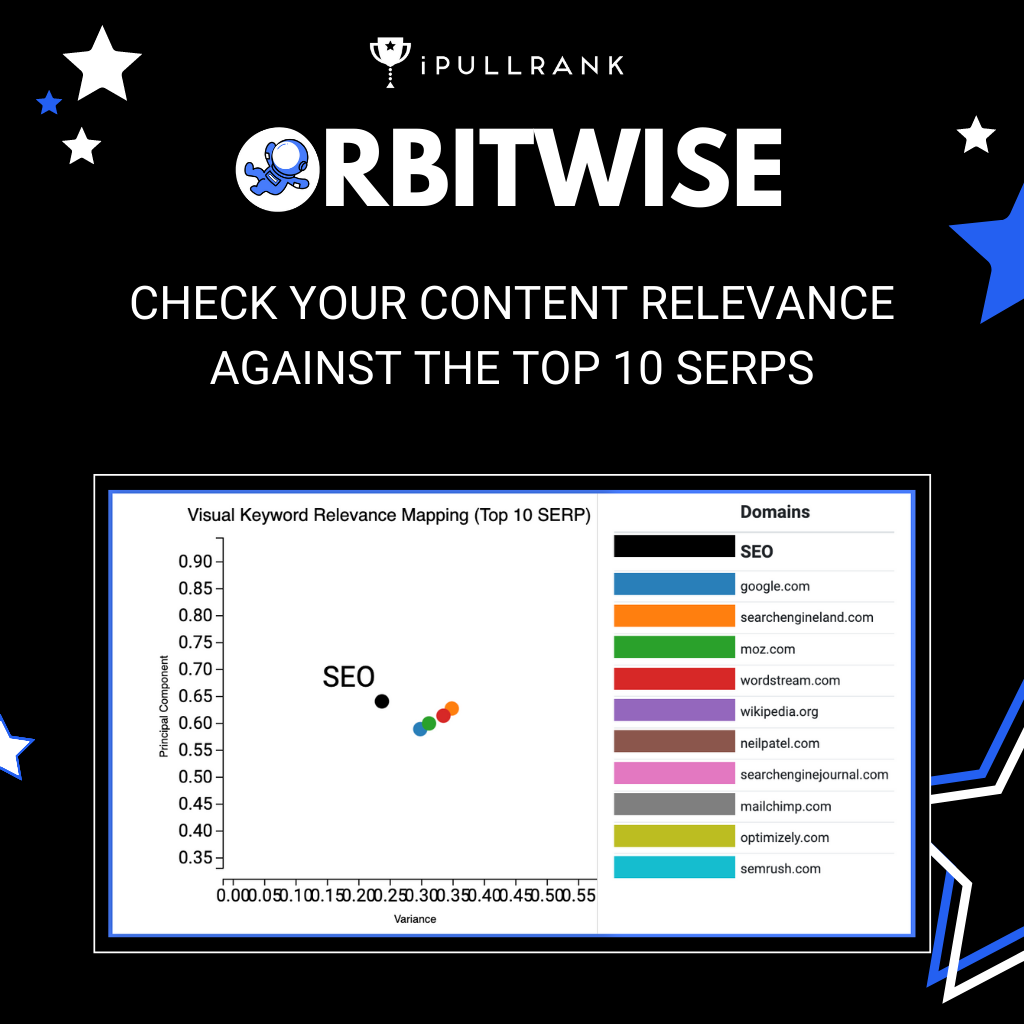
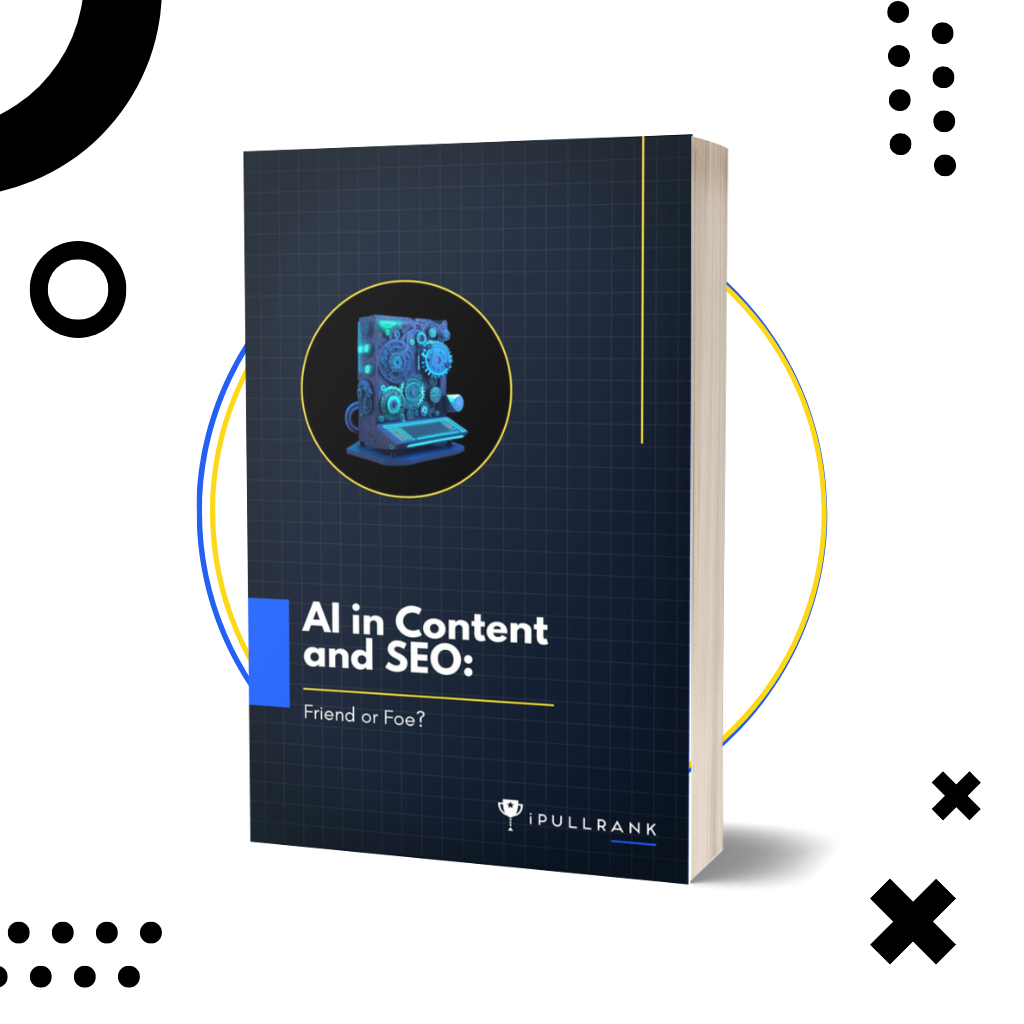

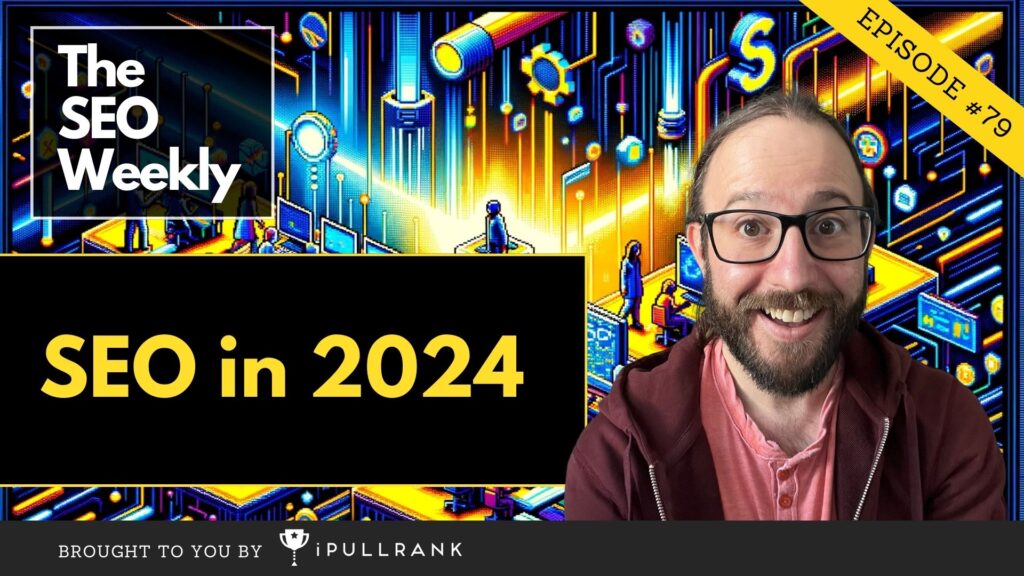
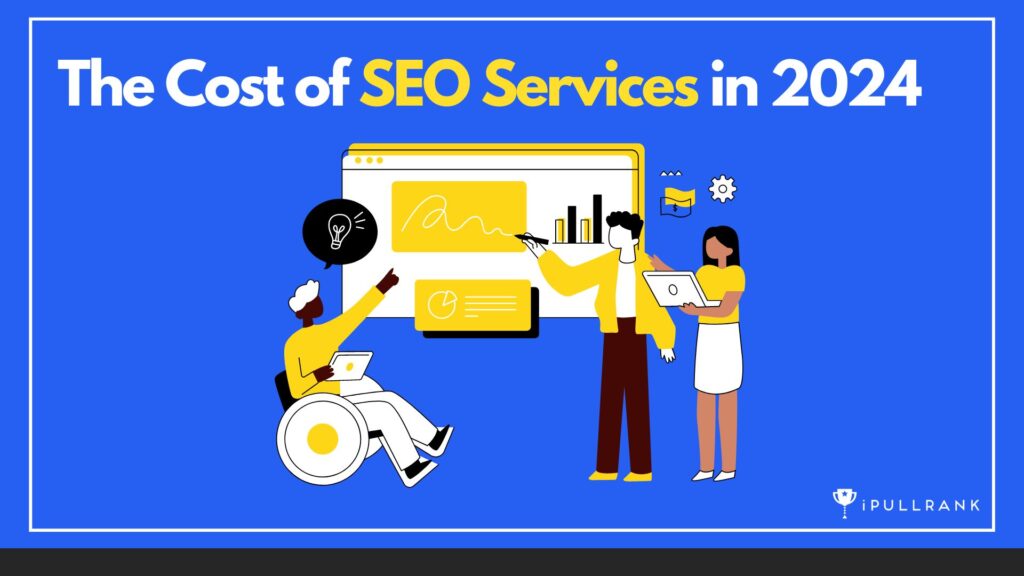
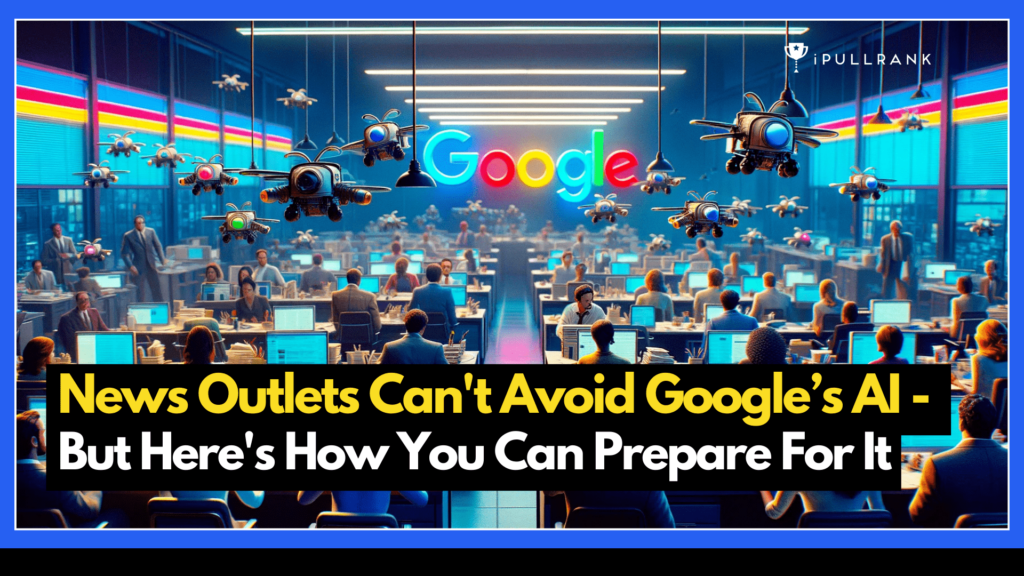


Leave a Comment